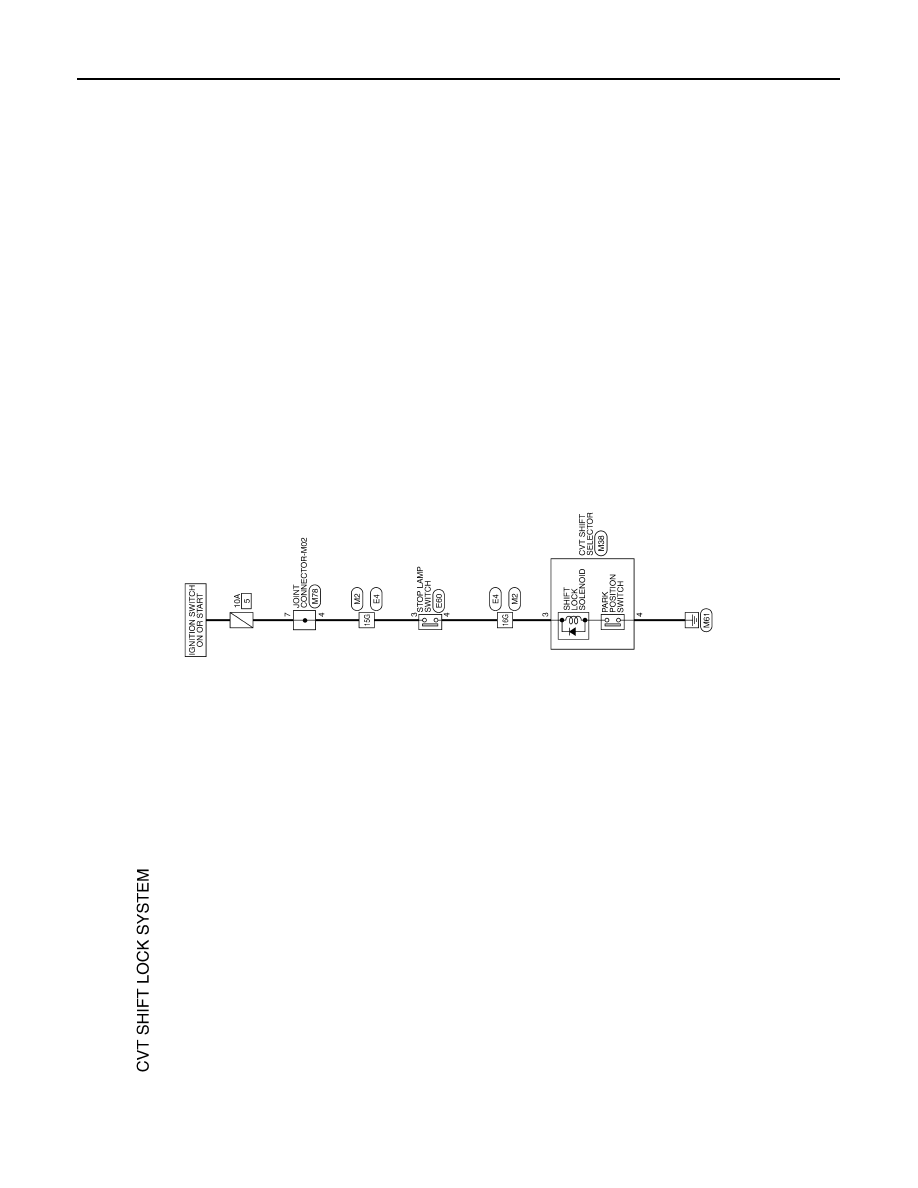Nissan Sentra. Manual - part 875

TM-136
< WIRING DIAGRAM >
[CVT: RE0F11A]
CVT SHIFT LOCK SYSTEM
CVT SHIFT LOCK SYSTEM
Wiring Diagram
INFOID:0000000009759369
AADWA0275GB
|
|
|

TM-136 < WIRING DIAGRAM > [CVT: RE0F11A] CVT SHIFT LOCK SYSTEM CVT SHIFT LOCK SYSTEM Wiring Diagram INFOID:0000000009759369 AADWA0275GB |